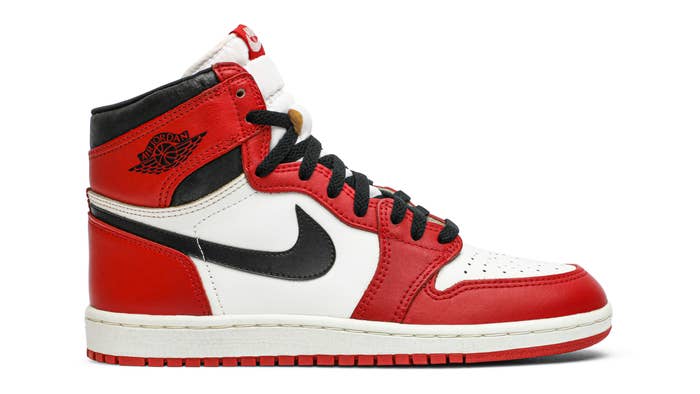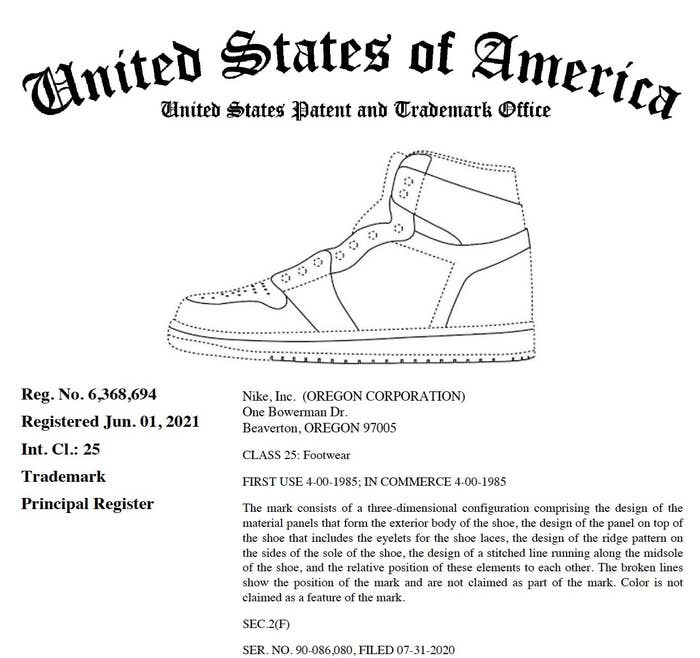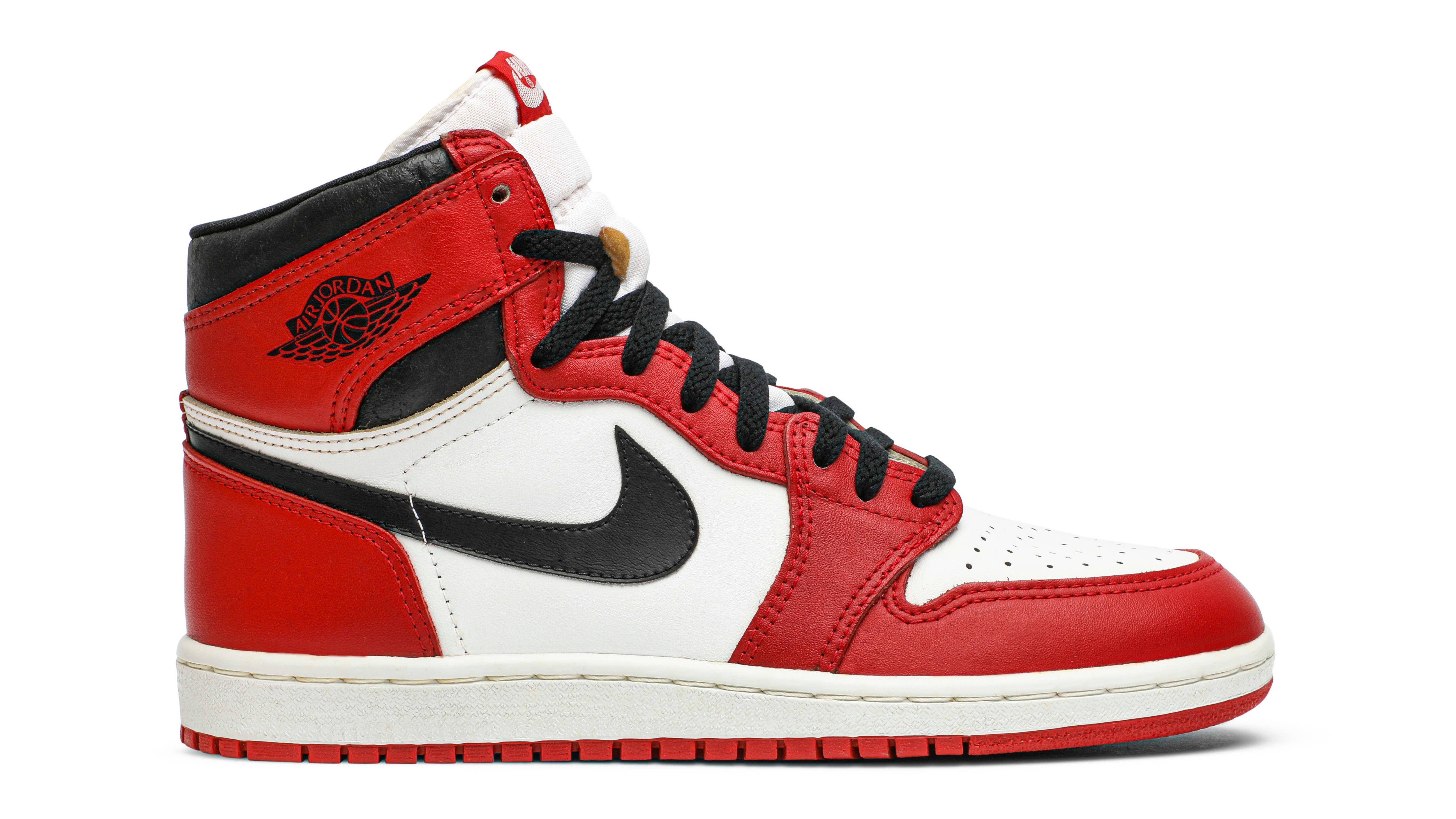
When news broke last week that Nike had secured a trademark for its iconic Air Jordan 1, a sneaker from 1985 that the brand regularly releases in retro form, it was viewed by many as a death knell for the wave of bootlegs borrowing the shoe’s silhouette. But a petition to the United States Patent and Trademark Office submitted on Sunday shows that designers seeking to make their own Jordan-esque sneakers are not necessarily going down without a fight.
In the filing, New York City-based Robert Lopez accuses Nike of fraud, saying that it submitted false statements to the USPTO and that its trademark for the Jordan 1 that was granted on June 1 was hence “improperly issued.” Lopez is the founder of RGL Consulting Group, a firm that, per its website, has “assisted independent brands and small business owners in successfully enforcing their brand ownership rights against corporate giants.”
The trademark Nike secured this month protects the overall composition of the Air Jordan 1, along with the Air Jordan 1 Low and Air Jordan 1 Low SE variations, under trade dress, which pertains specifically to the physical appearance of a product. It arrives amid a trend of smaller designers releasing their own versions of the Air Jordan 1 that essentially copy the model but replace its Nike and Jordan Brand imagery and wordmarks with new logos. Crucially, Nike’s new trademark can help the company defend its intellectual property and go after similar shoes even if they do not use its logos.
The trade dress for Nike’s Dunk sneaker, a style similar to the Air Jordan 1, was pivotal in the brand’s legal battle last year against independent designer Warren Lotas, who sold Dunk lookalikes.

Lopez argues that the rendering of the shoe Nike entered in for its trademark, which lacks the Swoosh that cuts across the upper of the Air Jordan 1, is not a version of the sneaker the brand has ever sold and thus should be canceled. Nike’s Dunk trade dress rendering also does not feature a Swoosh, despite most Dunks having a prominent Swoosh. This did not render it unenforceable—Nike eventually reached a settlement with Lotas, who was forced to change his designs.
While the vast majority of legit Jordan 1s do feature a prominent Swoosh on their upper, Nike subsidiary Jordan Brand has in fact occasionally removed the symbol from retail offerings. The Jordan 1 High released in collaboration with artist Dave White in 2012 did not have a Swoosh, nor did the “NS” series of Jordan 1 Lows from 2016.
Lopez in his petition frames Nike’s actions as overreaching and detrimental to designers who do not possess the clout or financial backing of the sportswear behemoth.
“Nike, Inc. is attempting to secure an IP portfolio of unregistrable or improperly registered marks so that it can implement its enforcement actions against small and independent clothing store owners to gain a strong hold and monopoly over the sneaker and apparel industry markets,” the filing reads.
Lopez, who goes by TradeMarkRob®, is described in the petition as an apparel industry entrepreneur who worked at a New York City intellectual property law firm for over a decade. According to the petition for cancellation, he is developing his own shoe that will be sold at his store. He writes that the Jordan 1 patent “places a cloud on” his right to make his own shoe that may incorporate some elements of the recognizable Nike silhouette.
Lopez’s website is currently promoting (among other things) a book release for 2021. On the cover of what appears to be a mockup for the book is the text “how to acquire wealth and get rich.”
Nike did not have a comment at the time of publshing.

